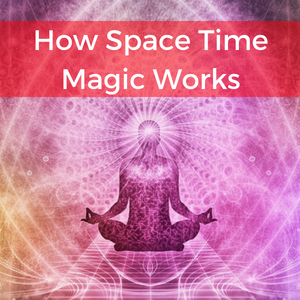Photo by oldskool photography on Unsplash
I’ve started re-reading the Spell of the Sensuous, which is one of those books I’d make mandatory for any magician. In the book the author notes that the magician’s place is on the edge of society, mediating both the human community and the community of nature and spirits that the magician connects with. This role is essential and the magician maintains it in order to connect with the wild, with the spirits and as a result bring about equilibrium in the human community.
The author shares this contextual definition based on his experiences in SE Asia, and so I found myself asking if what he defined as the magician’s place is applicable to Western society. And I think it is. Not the least perhaps because I’ve always seen myself on the edge and that I prefer to live in hard to find places that have a connection to nature, but just as importantly because I think that regardless of where you live, its necessary to find a way to connect with the larger world around you, and with what awaits in that world, both in terms of life and spirit.
The magician’s space is liminal space, that place between worlds where everything is possible, and yet until something is done, everything is also unmanifest. In such a space the magician has access to all the experiences and possibilities that she needs access to and most importantly to the allies she needs access to, but such relationships must be cultivated purposefully. If you want to connect with a spirit in the liminal space, you must necessarily seek that spirit out, but here’s where experience comes into play because how you connect with that spirit is through the awareness of experience. You aren’t just saying the name of the spirit or using a sigil to invoke or evoke the spirit. You’re feeling the vibrations of the name, as you say it, directing the name inward and outward. You’re paying attention to any sensations that feel unusual, any sensation which speaks to the presence of the spirit coming through. You are making space for something to happen and going outside of normative consciousness to connect with the experience you are having.
The focus on experience is the cultivation of the liminal, the awareness of subtle nuances and sensations that signal here is magic, here is possibility becoming into reality. It’s tapping into the numinous and letting that come through you and using your sensorial awareness to fully embrace the experience and allow it to take you out your everyday consciousness. And this is something that can happen any moment, at any given time. For instance, I can take a walk and during that walk if I choose I can connect to the spirit world by simply opening my perceptions up and choosing to let in every experience that is available. Underneath the ordinary there is often more going on that we don’t recognize or see., because we’ve blocked it out. Now we can use ritual, use various magical methods to get us there, but i’d argue we can also simply learn to open ourselves to what is around us, and challenge our awareness by letting in what we normally block out.
When I first started practicing magic, I spent a good half a year just learning different techniques of opening the perceptions and connecting with the elemental, underworld, cosmic, and other altered states of reality. Why did I spend so much time just focusing on opening up my perceptions? I realized that if I wanted to do magic I first needed to teach myself how to be aware of magic in all of its forms. Even now, so many years later, I still continue to work on honing my awareness and perception because I find that it keeps me open to all the ways magic can show up.
In the book I mentioned above, the author watches as some people in SE Asia leave an offering to the spirits and then discovers that the spirits are ants. Many people would look at that and say there’s nothing magical there, but what the author was able to see was the spiritual significance of the moment and recognize that what the people making the offering were doing was establishing and maintaining a relationship with the life around them, and as a result were connecting with the spiritual world in ways that were subtle yet significant. We might ask ourselves if we can’t do the same by simply discovering that any given moment and how we approach that moment can provide us an opportunity to discover and work magic. How then might that change our relationships everyday in the world we live and in the routines of the day we choose to engage in? How might our magical practice evolve if we allow ourselves to fully subsume ourselves in the experience and let it speak through us?

